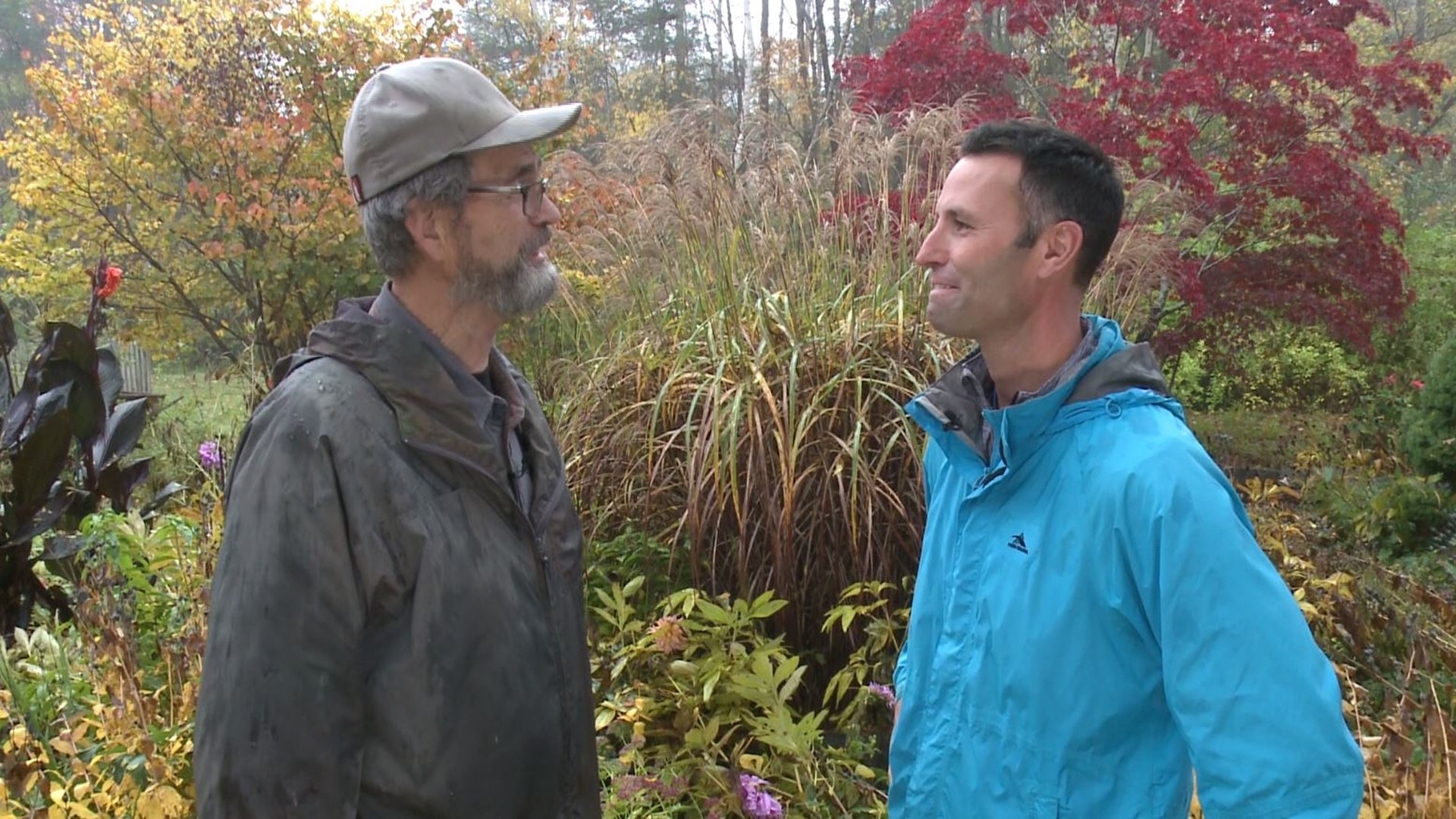MAINE, USA — It's time to get the garden ready to face winter. Gardening with Gutner visited one of its favorite Master Gardeners Tom Witwicki to see what he does to get ready.
Witiwicki starts by cutting back his hosta and daylilies.
"Some people use a string trimmer, but I find a clipper works best. It leaves less of a mess," the master gardener instructed. "If you leave these for the spring, it creates a real soggy mess."
Daylilies are even easier. Witwicki uses his hands to pull up the decaying vegetation.
He explained he doesn't cut all his perennials back because they provide shelter for insects and seed for birds while offering interest to the winter garden.
"I leave a lot of things, actually, and they look really nice in the winter. Especially in the snow. Things like the grasses, the sedum come to mind," Witwicki said.
Tender perennials like dahlias, begonias, and canna require more attention because they will not survive a Maine winter. Witwicki cuts them back and digs them up after the first frost and stores them in his insulated garage, but he said some people put them in their basements.
For the first time, the master gardener is using cover crops in his vegetable garden so the soil will not be bare.
Witwicki explained there are different types of cover crops. These include fall, winter, summer and spring cover crops. He showed a cover crop he planted in July called sorghum, which will die from the cold weather. Sorghum, he explained, adds carbon to the soil. Once it is cut back and dies, it acts as a mulch over the winter and protects the bed.
Next, he showed a fall cover crop called winter radish. This crop improves the structure of the soil.
"As the roots decay, they get pretty long. It aerates the soil," he said.
The last cover crop in Witwicki's garden is winter rye. He planted it in the fall. It will survive the winter and come back in the spring, but then he will terminate it by covering it with black plastic for a couple of weeks and then plant in to the dead material.
Witwicki went on to emphasize how important the master gardener program through the University of Maine Cooperative Extention has been to him.
"It's really given me an opportunity to learn more about gardening and also give back to the community through volunteering," the master gardener said.

